Futurestep Survey: Executives Believe Women in STEM Roles Helps the Bottom Line
However – Less Than One-Third of Respondents Say Their Companies Require Female Candidates Be Part of STEM Recruiting Pool
LOS ANGELES--(BUSINESS WIRE)-- Companies that want to increase profits should work to increase the number of women in Science, Technology, Engineering and Math (STEM) roles, according to an executive survey released today by the Futurestep division of Korn Ferry (NYSE:KFY), the preeminent global people and organizational advisory firm.
Of the nearly 1,000 executive respondents from around the globe, 63 percent said having more women in STEM careers would have a “great impact” on their company’s bottom line.
However, less than one-third (30 percent) of respondents say their organizations either often or always require there be at least one female candidate as part of the process for hiring STEM employees.
“Clients who understand the positive cultural and financial impact of having women in STEM roles often require that women candidates be included in the recruiting mix,” said Samantha Wallace, Futurestep Technology Market Leader for North America. “This doesn’t mean that the women will get preferential treatment, it simply helps create a diverse pool from which to choose.”
Statistics point to a significant under-representation of women in STEM careers. According to the U.S. Census Bureau's American Community Survey (ACS), women comprise 48 percent of the U.S. workforce, but just 26 percent of STEM workers. In other words, about half as many women are working in STEM jobs as one might expect if gender representation in STEM professions mirrored the overall workforce.
In the Futurestep survey, the respondents said STEM careers are being considered by less than a quarter of the high school girls and college women they know (e.g. children, grandchildren, children of friends/colleagues).
“There are many reasons why today’s companies have a low percentage of female STEM workers, including the fact that fewer young women than young men are choosing this field as their college major and profession,” said Wallace. “The silver lining though, is that we do see a slow but positive trend for more women in these roles.”
More than half of respondents (59 percent) said there are more women in STEM careers in their organization than five years ago. In addition, 58 percent said having an employee referral program targeted toward women STEM recruits would have a great impact on finding qualified candidates.
“We see that companies that make diversity efforts core to their recruiting and retention strategies have a better chance of attracting and keeping the most dedicated, engaged and productive employees,” said Wallace. “It’s no surprise that our survey respondents say that they expect having more women STEM employees will have a positive impact on financial performance.”
About the survey*
There were 913 responses to the global executive survey, which took place in April 2016.
|
What impact does having more women in STEM (Science, Technology,Engineering and Math) careers have on your company's bottom line? |
||
| Negative impact | 0% | |
| No impact | 15% | |
| Some impact | 22% | |
| Great impact | 63% | |
|
What impact would having an employee referral program targeted toward women STEM recruits have on finding qualified candidates? |
||
| Negative impact | 1% | |
| No impact | 9% | |
| Some impact | 33% | |
| Great impact | 58% | |
|
Compared to 5 years ago, how many women are in STEM careers in your organization? (STEM = science, technology, engineering and math) |
||
| Fewer women | 8% | |
| About the same | 33% | |
| More women | 59% | |
|
Does your organization require that when hiring for STEM-related positions, there be at least one female candidate in the mix? |
||
| Never | 39% | |
| Sometimes | 32% | |
| Often | 13% | |
| Always | 17% | |
|
Of the high-school girls you know (e.g. children/grandchildren, friends/colleagues children, etc.) what percentage are considering degrees in STEM careers? |
||
| Less than 25% | 49% | |
| 25%-50% | 33% | |
| 50%-75% | 17% | |
| 75%-100% | 1% | |
|
Of the college-age women you know, (e.g. children/grandchildren,friends/colleagues children, etc.) what percentage are pursuing STEM degrees? |
||
| Less than 25% | 60% | |
| 25%-50% | 24% | |
| 50%-75% | 10% | |
| 75%-100% | 6% | |
|
*Due to rounding, some totals may not equal 100 |
||
About Korn Ferry
Korn Ferry is the preeminent global people and organizational advisory firm. We help leaders, organizations, and societies succeed by releasing the full power and potential of people. Our nearly 7,000 colleagues deliver services through our Executive Search, Hay Group and Futurestep divisions. More information on Futurestep can be found at www.futurestep.com.
View source version on businesswire.com: http://www.businesswire.com/news/home/20160503005524/en/
Korn Ferry
Tracy Kurschner, 612.309.3957
Tracy.kurschner@kornferry.com
Source: Korn Ferry
Released May 3, 2016


